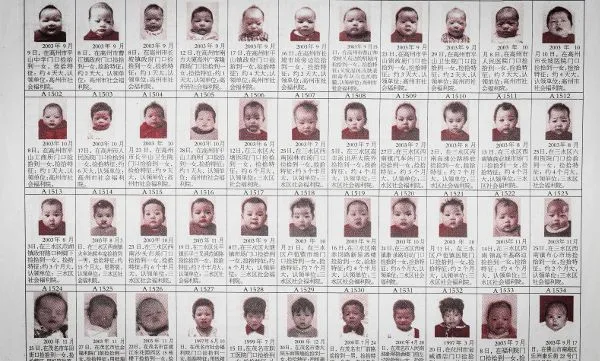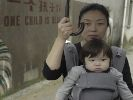Eye For Film >> Movies >> One Child Nation (2019) Film Review
One Child Nation
Reviewed by: Amber Wilkinson

Jialing Zhang and Nanfu Wang's documentary scrutinises the effects of China's One-Child Policy, with a particular focus on the impact it has had on Wang's own family and their community.
Now living in the US, the co-director has recently given birth to her first child, a boy, when she begins to consider what not being able to have any more children thanks to the restrictive diktat - instigated in 1979 and added to the Chinese constitution in 1982 - would mean. Ending the policy in 2015, the Chinese government said it had "made the country more powerful, the people more prosperous and the world more peaceful". One Child Nation goes on to suggest its more enduring legacy is one of trauma for the nation. It also shows the power of being constantly bombarded by propaganda - in everything from posters to children's books to operas - one of the reasons Wang cites for personally not questioning the policy before.

The importance of boys to Chinese society is not a revelation, although it's underlined here by the fact that Wang's first name - chosen for a boy while her mother was pregnant - means "man pillar". She is quite unusual in coming from a two-child household, something that was possible for some in rural communities, although there were still restrictions, including leaving a five-year gap between children. Her younger sibling is a boy and its chilling to hear how the family had a basket in their living room, ready to put the baby in and abandon it, if he had been born a girl. This sort of horrific detail crops up again and again in this documentary - and in Wang's family - which looks at a slew of abuses that resulted from the system.
In a heartrending interview with one woman who helped with 'family planning' during the period, she says she conducted between 50,000 and 60,000 abortions - a number she kept track of because of her guilt. Many of the sterilisations were done under force, with women more or less hog-tied and dragged to the medical centre, while families who refused often had their homes destroyed. Worse, many of the terminations were very late term, with babies essentially killed on arrival. Although the material is handled carefully by Wang and Lynn, this is a tough watch, not just because of the upsetting testimony regarding leaving children to die of exposure, but also because of photos from artist.
The film becomes slightly more sprawling in its final section as she goes on to consider the thorny subject of Chinese 'orphan' children - many of whom have gone on to be raised by families outside of China in the subsequent decades. Like all the individual parts of this documentary, it could easily make a film in its own right, and Wang and Zhang are to be commended for fitting as much in as they do, even if it does mean the film roams about rather than having a single focus.
In this segment, they consider not just abandonment of children but the way the policy may have encouraged human trafficking and a marketplace in babies. They also speak to Brian Stuy and Long Lan Stuy - themselves the adoptive parents of three Chinese daughters - about their work through Research China to track down the true origins of 'orphans'.
The overwhelming emotion here is sadness for the psychological trauma of a population - with secondary 'victims' in the West - who have been groomed by a propaganda system to believe that even when they loathe what they are doing it is necessary for the good of society and beyond question. Chillingly, we see how as the policy has now shifted to a two-child rule, the propaganda is being erased and replaced with the sight of two children smiling from billboards everywhere, leaving us to wonder what the consequences - intended and otherwise - of that may be in 30 years time.
Reviewed on: 04 Apr 2019















